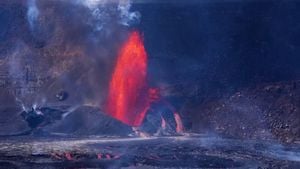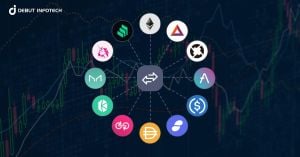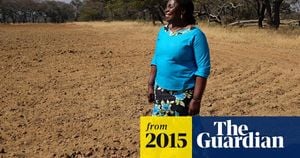On February 12, 2025, tensions surrounding international relations and diplomatic communications surged on multiple fronts, highlighted by remarks from China, engagements between U.S. and Russian leaders, and the actions of Hamas.
During the AI Action Summit held in Paris, China's Foreign Ministry spokesperson Guo Jiakun publicly voiced opposition to what he termed the "politicization" of issues involving technology and trade. "We oppose the practices of tracing lines based on ideology, generalizing the concept of national security, and politicizing economic, trade, and technological issues," Guo stated, illustrating the tensions simmering beneath the surface of international discourse.
The backdrop to Guo's comments included discussions led by American Vice President Jd Vance, who had expressed concerns about authoritarian regimes leveraging artificial intelligence to exert control. Vance's warnings echoed throughout the summit and catalyzed responses from various global leaders.
On the same day, reports surfaced about former U.S. President Donald Trump having engaged in discussions with Russian President Vladimir Putin. CNN anchor Kaitlan Collins disclosed on X, "Donald Trump had a phone call with Vladimir Putin this morning," stirring renewed interest and speculation about the content of their conversation and its potential ramifications for U.S.-Russia relations.
Compounding the geopolitical narrative, Putin also held talks with Syria's newly elected leader, Jolani, marking another layer of complexity to the Middle Eastern geopolitical stage. The Kremlin confirmed this exchange, emphasizing the importance of collaborative engagement with Syrian leaders amid regional volatility.
Meanwhile, on the ground level, Hamas issued strong statements about its stance on hostages related to their conflict with Israel. According to reports from Al Arabiya relayed by the Russian TASS agency, Hamas declared, "It will not release hostages if Israel does not meet Gaza's conditions," demonstrating how local conflicts remain deeply tied to the grander geopolitical conversations happening at these international summits.
The intersection of these events highlights not only the fragility of diplomatic ties but also the persistent geopolitical maneuvering being conducted as leaders navigate complex relationships amid calls for technology governance and strategic international alliances.
Each dialogue and exchange, whether it be from China’s denunciation of ideological divides or the intense military and political actions from groups like Hamas, plays its part, reminding global citizens of the stakes involved. These components together narrate the continuing saga of diplomacy and the enduring necessity for dialogue across political and cultural divides.
Looking forward, the international community remains on edge, attentive to how these connections will evolve and whether they will pave the way for resolution or escalate tensions. What remains clear is the need for collaborative dialogue amid the challenges of political and ideological divisiveness, setting the stage for forthcoming interactions among world leaders.



